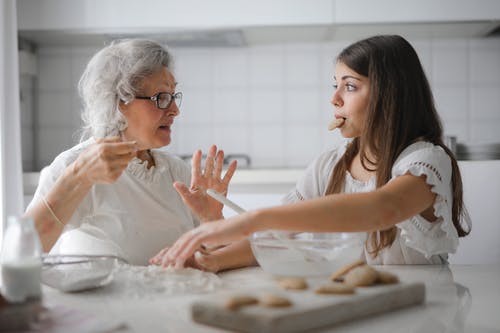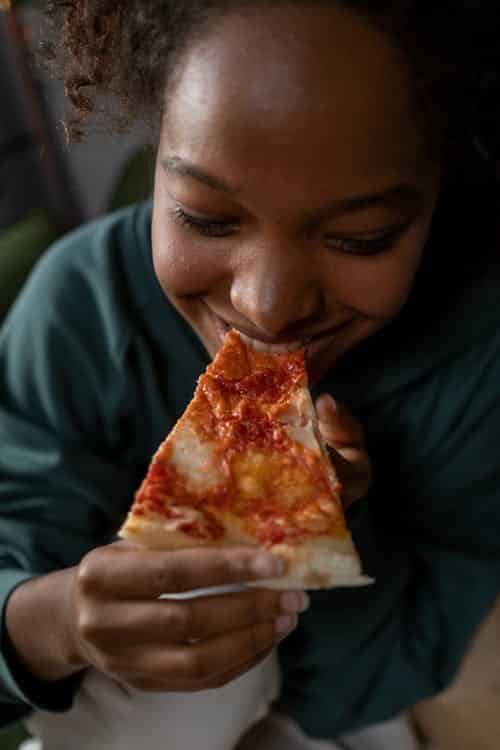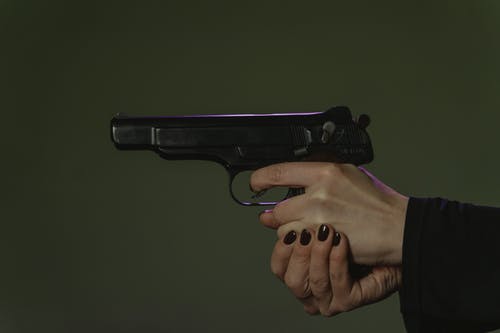Late night car conversations are to thank for the spark of inspiration behind this post.
On the drive to drop a friend off after a party last weekend our conversation turned to work.
We talked about why it is it that we do the different work we do.
I do the work I do because mental health struggles were a big part of my past. Having experienced the stark contrast between the different versions of life I’ve lived with and without anorexia nervosa and knowing what’s possible means that contributing to meaningfully improving the mental wellness of others is now incredibly important to me.
Somewhere along the rainy drive she said politely “is it ok if I ask you about what areas you worked on to recover from the eating disorder?”
Her hesitation and uncertainty that I might not be ok to answer this question surprised me. We’re friends and my journey with anorexia nervosa is far from a secret.
It got me thinking about why people feel uncomfortable to ask these questions or why they may be unsure if it’s uncomfortable for me to answer these questions.
The truth is I talk about that time I had anorexia nervosa in much the same way I talk about that time I broke my arm.
Because that’s about how much it means to me now.
It’s unfortunate that it happened, I wouldn’t choose that path again and if I could go back and do it all differently and yet overall, I am at peace with it being a part of my story.
The approximately 15 years I lived with anorexia nervosa are far from the biggest or most important part of my story and yet it’s an unavoidable part none the less.
Talking about the time I lived with anorexia nervosa no longer causes me any inner turmoil and definitely no shame because I know that that life is well and truly over.
I have no fear because I know the threat of it re-emerging is non-existent.
It would, in all honesty, be impossible for me to go back to the way I used to do things. My brain just doesn’t operate in that way any longer and thankfully I no longer have to work to maintain that. It just is.
Which is a huge reason why I’m more than happy to talk honestly about my journey because more people in recovery from eating disorders need to know full recovery is possible.
ALL people in recovery from eating disorders need to know full recovery is possible.
Which is why in the remainder of this post I want to share with you a sample of things which triggered me when I was living with anorexia nervosa versus what triggers me now in my recovered life. This is with the intention of highlighting the contrast between what may now be your reality and what’s possible.
I want you to know that no matter what triggers you now, it is possible to be free of that. Not inevitable, not guaranteed and it won’t happen overnight or without effort but it is possible.
Let me now share with you 3 things that triggered me immensely when I lived with anorexia nervosa compared to 3 things that trigger me today…
3 Things that Triggered Me When I Lived with Anorexia
- What Other People Ate

This was a big contributor to my developing an eating disorder in the first place.
I had a few experiences when I was young where important people in my life questioned what I was choosing to eat.
I trusted them which meant that without being consciously aware I was doing so I became increasingly unsure as to whether I could trust my body.
With this growing sense of doubt and mistrust in myself, I looked to the outside world.
And unsurprisingly there was no lack of opinions and messages telling me what I should and shouldn’t do.
I looked to my sisters, dad, mum, friends to see what they were eating and if I could copy that.
I listened to and applied what I was taught in school. Only I was a perfectionist and overapplied the advice to eat low fat to mean eat no fat and eat mostly fruit and vegetables to mean eat only fruit and vegetables and so on.
Yeah, that spiralled about as quickly as you can imagine.
When I was in the midst of the eating disorder and particularly when I was attempting recovery seeing what other people ate or hearing them talk about what they ate was a trigger like you would not believe (only if you’re in recovery from an eating disorder currently I am sure you can believe).
It might have been 10s or 100s of times a day where I’d notice what someone else was or wasn’t eating, what they said they were or weren’t eating, what they said about what other people were eating or not eating and so on.
This included even when I didn’t know the person at all or knew them very little. Somehow what they did and didn’t eat and their thoughts on what we should and shouldn’t eat were still most important to my mind.
It was endless and each and every time I’d retreat further into the eating disorder.
There was no way I could eat “right” and that destroyed me.
It seemed no one was eating enough and certainly the dominant message in society was (and still is) to eat less.
An arbitrary amount of “less” and utterly independent of how much you are currently eating.
I knew it wasn’t actually important what others ate, but I always felt what others ate was so important.
It doesn’t feel important anymore.
I both know it’s not important and feel it’s not important.
Other human beings can eat what they like, or eat what they’re told to eat, they can be clear, healthy and trusting their own body or they can be in the thick of self-doubt easily swayed by diet culture, they can eat less than me, they can eat more than me, it can be similar things, it can be completely different things. It’s of no concern to me.
Today I don’t need anyone else on this planet to eat a certain way for me to feel ok.
With that comes a massive freedom but also, it’s just become so deeply my norm that I wonder how it could ever have been any other way.
It feels surreal to write about.
2. How Other People Exercised

This one was arguably more painful than the constant obsession with what other people ate.
How other people exercised consumed me.
When I lived with anorexia nervosa, I regularly lied about what I’d eaten, if I’d eaten and how much I’d eaten.
It felt horrible.
I wished I could tell the truth but there was always some way I could justify the lies. I’d have let them down and it would hurt them too much to know, I didn’t want to be an inconvenience and I didn’t want to worry them.
In hindsight I can see the lies were just fuelled by nothing more than fear.
If I told the truth there’d always be the risk, they’d make me eat.
What if they made me eat?
That was the real fear.
But more regularly than I lied about food I lied about exercise.
I lied about exercise daily.
To be honest that was just my norm. I felt less bad about this lie. Still hated myself for it but I really didn’t see another way. I could justify that lie to myself quite well because if I was honest about the exercise I was doing and exercise was taken away from me I had no comprehension of how I would cope.
I would rather die.
And just to be clear that is not an exaggeration.
When you have only one means of coping, of course the threat of that being taken away is devastating.
Now? I couldn’t give a damn about what other people do for exercise.
In the same way that developing a sense of self allowed me to free myself from the fixation on what other people were and weren’t eating this also allowed me to separate myself from what other people were doing for exercise (and anything else for that matter).
Developing a sense of self, self-esteem and genuine self-trust were the greatest thing I did not just for recovery (it was necessary for recovery) but for my life.
There is no one who can tell you what your body needs better than your body can. This doesn’t mean that there aren’t plenty of people who are willing to though. Because there is. Plenty with poor intentions and plenty with wonderful intentions and plenty with intentions of every shade in-between.
The essence of recovery is coming home to yourself. Much of what it takes to lead a truly successful and healthy life is knowing yourself.
Then it simply doesn’t matter what they do or say because you know your path is your path and through it all you have the choice to choose.
That is the definition of freedom.
3. What Other People Said

When I lived with anorexia nervosa I was “sensitive” to a degree that I’m not sure is possible to articulate.
I was all feelings.
So many feelings.
I had no filters, no walls and no boundaries.
Everything anyone said was taken in and taken onboard.
Everything.
If you are reading this and you are in recovery from an eating disorder you’ve likely heard or have had your own experience that when people make wonderful, encouraging, positive and very well-intentioned comments like “you’re looking healthy/good/well” you don’t take them positively do you?…
I can’t connect to how much such comments used to derail me but my gosh do I know they did. I know there was more than once that a simple sentence had the power to put my recovery back months if not years.
Interestingly if someone was to say any of those things to me today it would honestly feel nice.
Something I haven’t thought about because it’s not on my radar but if I do think about the last time someone may have said something like this to me it was the night of the same party I was dropping my friend home from last weekend that instigated this whole blog topic.
At that party another of my friends commented on how happy and healthy I looked and how my skin was glowing.
Well, a few short years ago that comment would have brought up a cocktail of hurt, fear confusion and shame.
Now, well now it was amazing to hear.
It genuinely felt good.
I didn’t have to convince myself that her saying it was with good intentions and that I shouldn’t take it to mean anything negative.
This is so strange to write because when I started writing this blog, I didn’t know I’d be thinking about the compliments I’ve been given lately. It really hasn’t been on my radar how easy and natural it is to receive compliments now.
Just the other day a mum of one of my young clients was expressing her frustration to me about how difficult it is for her daughter to recover in a world where every message is basically telling her not to. How frustrating it is to compete with a society and culture where every person seems to be focused on what they’re eating and how they’re exercising and endlessly and blindly pushing for less of the former and more of the latter.
And I get it, believe me I do. This was no less when I went through recovery.
But let me tell you that you will not change the world through telling others it is ok to breakout of diet culture, it is ok to love yourself enough to feed yourself well.
You will change the world only through your actions.
In any case the clutch of diet culture may change in your lifetime, and it may not. It’s a big risk to take hoping the outside world changes or even working towards helping the outside world change so you can then and only then feel more comfortable.
Too big a risk in my opinion.
Rather than wait, hope or try to make the outside world change when would you consider focusing on yourself?
What can you change within you?
How can you become the person who is no longer drastically and negatively affected by the thoughts, opinions and actions of others?
As I write this, I realise that for the most part, the friends I have in my life today do not discuss bodies, diets or food to any great degree. What we do discuss is love, goals and plans for our future, we discuss mistakes we’ve made, our shameful moments and our growth.
You can have this.
Your life doesn’t have to be with those who are lost and consumed in diet culture.
You don’t have to save everybody.
And you don’t have to wait for everybody to be saved before you save yourself.
You can find people who have ambitions, dreams and self-belief and choose them.
But at the same time, I know I don’t need this in order to feel ok.
My self-belief is unshakable.
And it is wholly transferable to even the most toxic of situations.
You can’t rescue everyone from diet culture, but you can begin with yourself and through being the example of what’s possible you will inevitably change lives.
I can promise you that the people of the world don’t want or need another person to tell them what to do.
We do need more examples to simply show us it is ok to do those things.
I wish I’d had more of those examples.
3 Things that Trigger Me Now in My Recovered Life
I hopy you have read enough within this blog and my other blogs to know what I am going to say next…
- Nothing
- Nothing
- Nothing
I’m sure you can get a sense after reading this that the most triggering thing to me in recovery from anorexia nervosa was other people.
Other people and the outside world in general.
Which is clearly unfortunate given that no human being recovers from an eating disorder in isolation.
There is always going to be some level of outside influence.
The only way to recover is to begin to build the skills and resources you need to increasingly trust yourself above others. That’s no mean feat in a world that constantly tells us to outright not trust ourselves.
Find treatment that’s empowering.
Because I know if I’ve done my job well as a health professional you will be listening to yourself more than you’re listening to me or anyone else.
This is what truly matters in recovery because after all it is you and only you that you get to live every moment with for the rest of your life!
And interestingly with all the triggers, strain and complexity others bring to recovery it was also other people who without a shadow of a doubt who made recovery possible for me.
Most of all the clinical hypnotherapist and life coach I saw.
Thank you for believing in me, long before I believed in me.
It is my hope that you first find those who guide you on your path to empowering yourself and then you go on to become someone who empowers others. Not because you have to, feel obliged to or but simply through holding up one example amongst many options of what’s possible.
One example of a perfectly imperfect life.
With my whole heart I hope you found this information useful and inspiring.

Become Great. Live Great.
Bonnie.



